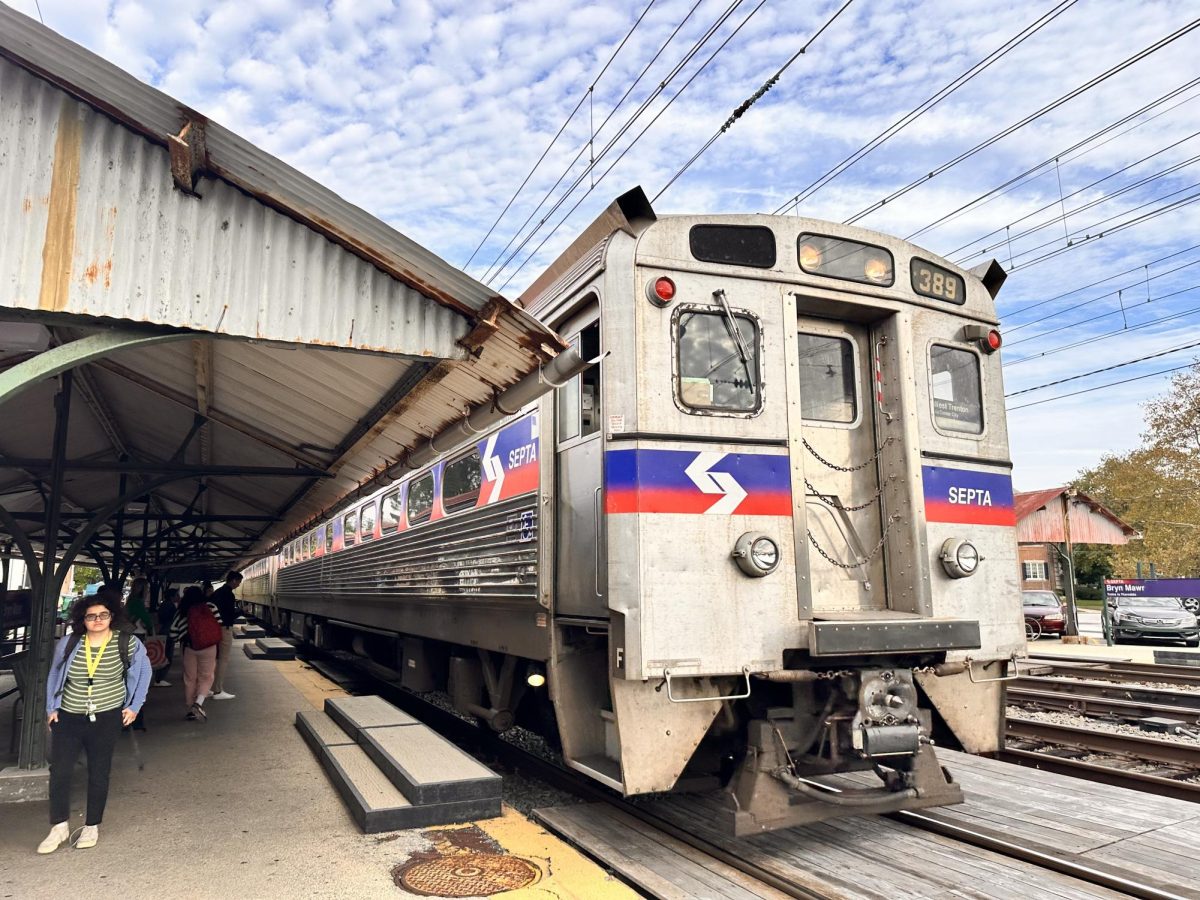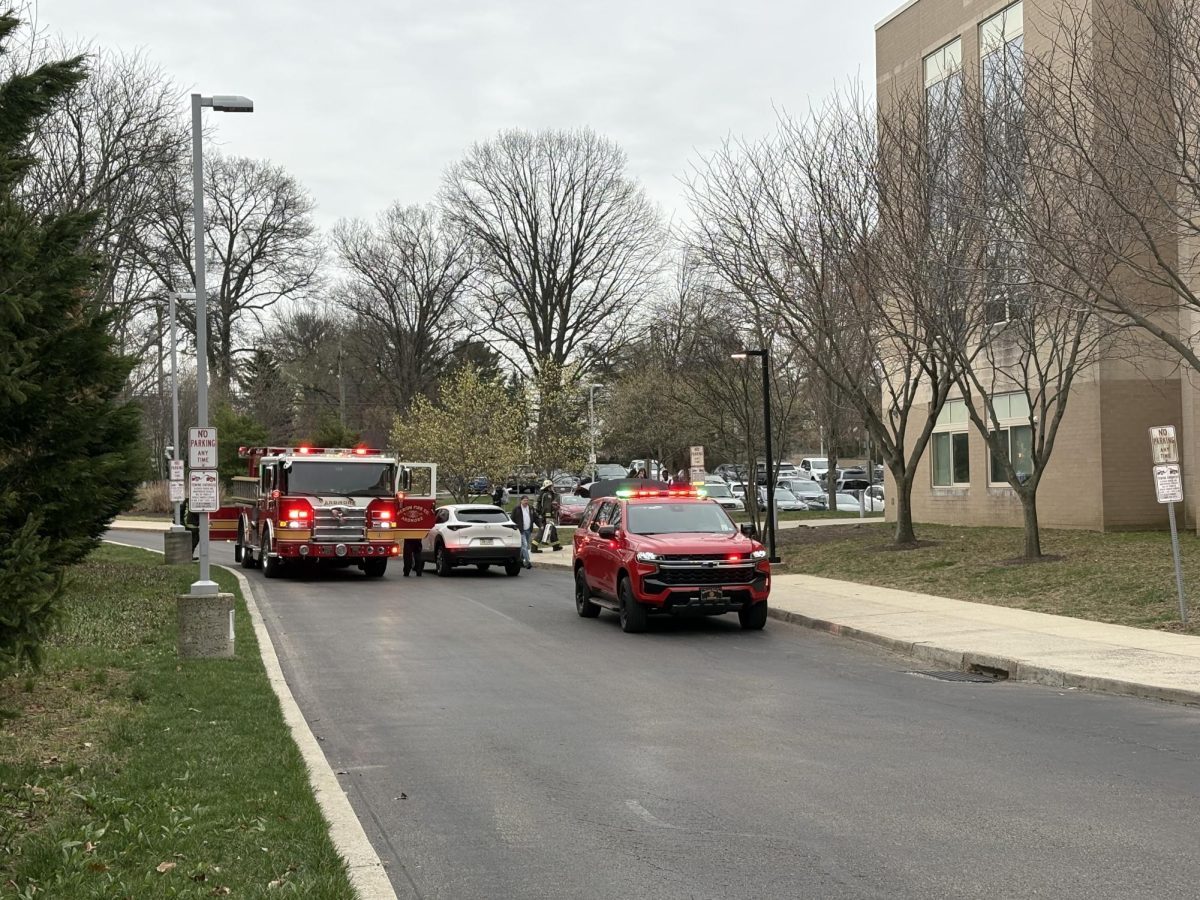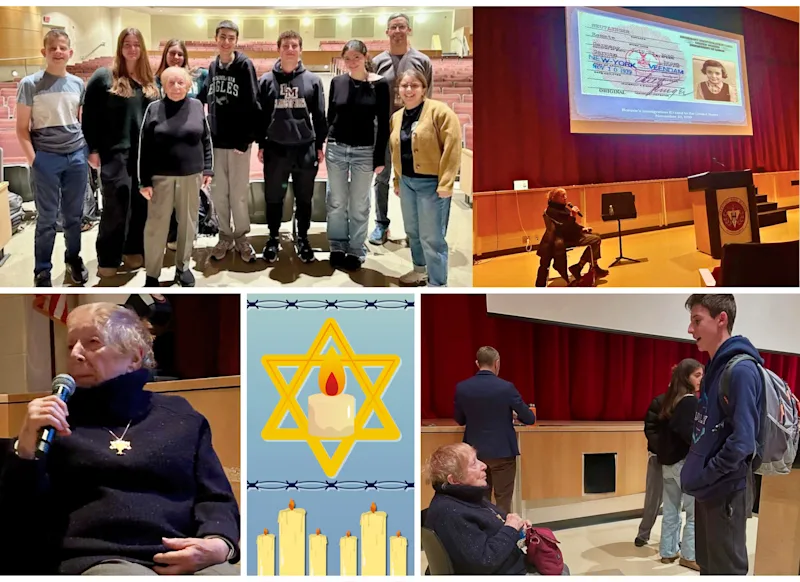Against the backdrop of increasingly hostile national and local discourse surrounding the Middle East, a group of LM teachers and students attempted to plan and execute a discussion panel with the stated intent of fostering respectful and productive dialogue about the escalating Israeli-Palestinian conflict. However, in the Spring, the discussion panel was discussed for months before ultimately being denied approval in its proposed form.
The attempt to host a discussion began with social studies teachers Sania Mirzanschall and Mark Levy and their collective worry about relationships between students that may have been damaged during the first aftershocks of the attacks and violence that began on October 7, 2023. According to Mirzanschall, tension within the LM community had caused a rift between community members on opposing sides of the conflict. Following a series of meetings, the two teachers began brainstorming effective ways of creating a community of acceptance of differing views, settling on the idea of a discussion panel between the two of them, meant to be “Modeling how to have a constructive conversation between people who might not necessarily agree on a number of things but respect each other and are willing to listen. Maybe after that a group of students (presumably mainly Muslim and Jewish) would want to continue this effort and form a dialogue group,” according to Levy. The idea of a discussion panel is not a new one, and multiple colleges have successfully adapted it. Levy describes, “Look at Dartmouth College, where a course on Israel/Palestine is taught by Israeli and Egyptian professors jointly and is incredibly popular and challenging–students who agree with one side are immediately given something to read [from] the ‘other side.’” He continues that the panel discussed between him and Mirzanschall “could mimic [the course] in a small way.” Mirzanschall found this work critical because, as she relayed, “[After the] Merionite articles about Palestine and Israel came out, looking forward to productive discussions was important.” Mirzanschall referenced two controversial opinion pieces published in The Merionite’s 2023 December issue, both of which were taken down. For more information on these articles, see “The Merionite and LMSD face controversy over sensitive articles” from the 2024 February issue of The Merionite. Mirzanschall hoped that a public discussion between her and Levy could model productive dialogue to the student body. The event was proposed to be in a question and answer format in which four student panelists–Noah Barkan ’24, Aliyah Brownstein ’25, Mihir Steingard ’24, and Sarah Sfaxi ’24–would ask the two teachers pre-approved questions while the audience of LM students could watch, listen, and learn how to have constructive dialogue. Although the safety and education of students is of the utmost importance at LM, Mirzanschall and Levy believe that the panel would have provided students with exactly those two things. Mirzanschall described that, with a series of pre-approved topics and questions, the discussion hoped to operate with organization and moderation.
In December, Mirzanschall and Levy shared their plan with Principal Mike Johnson, who, according to Mirzanschall, wanted to consider the event from a principal’s perspective. However, due to miscommunication, the panel was announced to take place in January, although it had not obtained specific approval. Following the event’s publicity, LMSD received sharply negative community feedback about the event. Upon hearing the proposal, Dr. Johnson communicated concerns regarding its timing, the lack of student sponsorship, and the community response, which indicated that it needed additional thought. Mirzanschall reports that Dr. Johnson then put the event on pause, conveying that before the discussion took place, LM needed to host advisory lessons on antisemitism and hate speech, which then took place on March 21 during advisory. She reports that they were informed the panel could not move forward until after the completion of these advisory lessons. Following these initial discussions, Johnson suggested that a student group sponsor the event. The officers and club sponsor of LM’s Model United Nations club were then contacted as of January 11th, and a subset of the Model UN officers agreed to be student sponsors of the event in mid-January. However, Dr. Johnson related that he does not believe that the Model UN sponsorship of the panel was communicated to administration until April 20th.
On April 20, three of the students involved in organizing the panel, Barkan, Brownstein, and Steingard, in an email to Johnson and Superintendent Steven Yanni, reiterated their interest in hosting the event. They further stated that “although two of us are seniors, we are willing to work through our senior project to ensure it takes place before the end of the year.” They ended their correspondence with the following statement: “If the event is unable to move forward, we respectfully request that we be provided with a rationale and school policy that outline the specific reasons why.”
In Steingard’s opinion as one of the student leaders, administration won’t be able to point to a concrete policy that would serve as a basis for withholding approval for the event. According to Mirzanschall, “Ordinarily when challenging topics and controversies arise, the district usually prides itself in protecting staff from negative repercussions based on Policy R119.”
The policy Mirzanschall is referring to, Policy R119, tackles “Controversial and Value Issues/Objections to Instructional Materials.” The policy reads, “Both principals and department chairs shall be responsible for informing all staff members of the policy on coverage of controversial issues in the curriculum,” it then goes on to explain the formal process of objecting to “instructional materials.”
Dr. Johnson stressed that Policy R119 does not apply outside the classroom: “For context, Policy R119 encourages controversial topics to be broached in the classroom, incorporated into the curriculum. This is why the policy calls for inclusion of department chairs as topics are potentially broached in classrooms. The whole policy is with respect to classroom discussions/assignments, and does not encourage teachers sharing their perspectives, but giving students the opportunity to discuss topics. Viewpoint neutrality is the key here … which is why we would not facilitate a political discussion and invite a conservative and democratic teacher to an open forum to share their perspectives on the upcoming election while students watch, listen, and ask them questions about their perspectives. While some students would like that, sharing personal perspectives can unduly influence students OR cause students to develop negative opinions about teachers because of their personal beliefs. Public educators are held to a different standard than students with respect to viewpoint neutrality. Giving the public educators the platform to share THEIR views/perspectives with students would be outside of what Policy 119 prescribes.”
Though Barkan, Brownstein, and Steingard agree that Policy 119 applies solely to curricula within the classroom and not outside the classroom, they don’t believe that that means teachers cannot broach the discussion of polarized or political topics outside the classroom entirely. “Policy 119 doesn’t specifically mention extracurricular events but it also doesn’t specifically deny teachers from teaching political discussion either. The absence of a subject matter is not the exclusion of a subject matter,” Steingard states, “We can’t assume that, just because 119 doesn’t explicitly set parameters for extracurricular political discussion, any and all extracurricular political discussion isn’t allowed.”
To Barkan, Brownstein, and Steingard, the decision to not approve the event was uncalled for and is unsupported by school policy. Brownstein comments, “This kind of situation is one that student activists and writers have encountered with the LM administration numerous times before. Sadly, it doesn’t surprise me in the slightest…Of course, nobody would actually admit that politics are the reason for this kind of censorship at LM, but since the administration continually fails to provide us with concrete policies to justify their rejection, I cannot see there being any other reason.”
The three student leaders are optimistic for the future, however, and so are the two teachers. Despite the negatives, Levy says, “one real positive that has come out of this is increased communication between district administration and the wider community,” which he describes can only be a good thing. Since the Model UN’s email about sponsorship was sent, a meeting has been set up with Mr. Stroup to discuss the potential of bringing students together from the Model UN’s at both high schools for a joint event towards the goal of students discussing difficult and controversial topics with civility with the potential of an outside facilitator. Barkan especially believes that, “If the teachers avoid first-person speech and instead put forward arguments from either side, removed from their personal beliefs, it would render concerns about neutrality invalid.” Johnson shared that he remains “open to an opportunity to think of a different approach to accomplishing the goal of helping students develop the skills to discuss controversial topics in a civil manner” and “discussions are happening between the high schools about the potential of moving an event forward as soon as this year.”
The three students plan to continue ongoing in-person meetings and keep open lines of communication with administration in the hopes that the decision to approve the event is made before the end of the 2023-24 school year.






